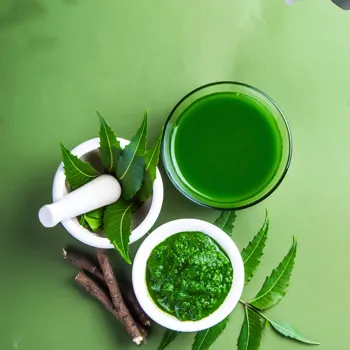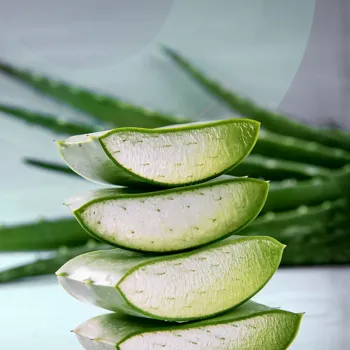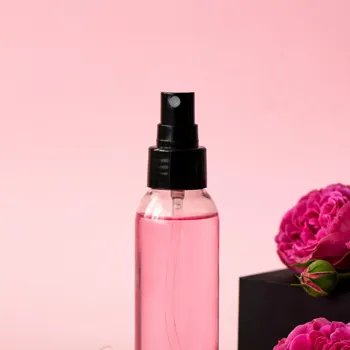Unveil the magic of Ayurvedic skincare with 7 herbal treatments for glowing skin! Dive in to discover nature's secrets
Namaste, beautiful people! Tired of those never-ending breakouts, dull skin, or just
feeling like your skin could use a little extra love? Well, ditch the chemical-loaded products for a bit and let's dive into the treasure trove of Ayurveda.
Our very own ancient wisdom holds secrets to radiant and healthy skin, using the power of herbs readily available in your kitchen garden or local market. Prepare to be amazed as we uncover seven herbal treatments that will revolutionize your skincare routine forever!
These remedies are gentle, effective, and, most importantly, deeply rooted in the holistic approach of Ayurveda, focusing on balancing your inner energies for outer glow. So, bid farewell to complicated regimes and say hello to naturally glowing skin!
Turmeric: a skincare powerhouse for glowing skin
First up, we have the magnificent Turmeric, or Haldi, as we fondly call it. This golden spice is more than just a kitchen staple; it's a potent anti-inflammatory and antioxidant powerhouse. Turmeric helps combat acne, reduces blemishes, and brightens your complexion.
Its active compound, curcumin, is the real star, working wonders to heal and protect your skin from damage. To create a simple yet effective face mask, mix a teaspoon of turmeric powder with a tablespoon of honey and a little bit of milk or rose water.
Apply this paste to your face, leave it on for about 15-20 minutes, and then rinse with lukewarm water. You'll instantly notice a brighter and more even skin tone. Regular use of turmeric can significantly reduce hyperpigmentation and give you that coveted natural glow.
Remember to use turmeric sparingly, as it can temporarily stain the skin if used in excess. Opt for organic turmeric powder for the best results and maximum benefits.
Neem: versatile herb with antibacterial benefits for skin care
Next on our list is Neem, the versatile herb known for its incredible antibacterial and antifungal properties. Neem is a boon for those struggling with acne, eczema, or other skin infections. Its purifying properties cleanse the skin from deep within, preventing breakouts and promoting healing.

You can use neem in various forms, such as neem oil, neem powder, or even fresh neem leaves. For a simple acne-fighting face mask, grind a handful of fresh neem leaves into a paste and apply it directly to the affected areas. Leave it on for about 10-15 minutes and then rinse with cool water.
Alternatively, you can add a few drops of neem oil to your regular moisturizer or use a neem-based face wash for daily cleansing. Neem's slightly bitter scent might take some getting used to, but trust us, the results are totally worth it.
Regular use of neem will leave your skin clear, healthy, and protected from infections. Remember to do a patch test before applying neem to your entire face, especially if you have sensitive skin.
Aloe vera: the ultimate skincare superstar
Then we have Aloe Vera, or Ghritkumari, the soothing succulent that's a must-have in every skincare arsenal. Aloe vera is renowned for its hydrating, anti-inflammatory, and healing properties. It's perfect for soothing sunburns, calming irritated skin, and moisturizing dry patches.

The gel extracted from aloe vera leaves is packed with vitamins, minerals, and antioxidants that nourish and rejuvenate the skin. Simply cut open an aloe vera leaf and scoop out the gel. Apply it directly to your skin as a moisturizer, a soothing after-sun treatment, or a calming face mask.
You can also mix aloe vera gel with other ingredients like honey or lemon juice for added benefits. Regular use of aloe vera will keep your skin hydrated, supple, and protected from environmental damage. It's a gentle and effective remedy for all skin types, making it a true skincare superstar.
Make sure to use pure, unadulterated aloe vera gel for the best results.
Tulsi, the holy basil, benefits skin with antioxidants and healing properties in face masks
Moving on, we have Tulsi, or Holy Basil, the sacred herb revered for its purifying and healing properties. Tulsi is rich in antioxidants and has antibacterial, antifungal, and anti-inflammatory properties, making it an excellent remedy for acne, blemishes, and other skin problems.
It helps to cleanse the skin, remove impurities, and protect it from environmental damage. To make a tulsi face mask, grind a handful of fresh tulsi leaves into a paste and mix it with a little bit of honey or yogurt.
Apply this paste to your face, leave it on for about 15-20 minutes, and then rinse with lukewarm water. You can also use tulsi-infused water as a toner to refresh and purify your skin. Regular use of tulsi will leave your skin clear, radiant, and protected from infections.
It's a powerful herb that deserves a place in your skincare routine. Opt for fresh tulsi leaves whenever possible for maximum benefits.
Sandalwood for skincare: brightens, soothes, and improves complexion
Now, let's talk about Sandalwood, or Chandan, the fragrant wood cherished for its skin-brightening and soothing properties. Sandalwood has been used for centuries in Ayurvedic skincare for its ability to even out skin tone, reduce blemishes, and impart a natural glow.
It also has cooling and anti-inflammatory properties, making it ideal for soothing irritated skin. You can use sandalwood powder in face masks, scrubs, or even as a standalone treatment. To make a simple sandalwood face mask, mix sandalwood powder with rose water or milk to form a paste.
Apply this paste to your face, leave it on for about 20-30 minutes, and then rinse with cool water. Regular use of sandalwood will leave your skin brighter, smoother, and more radiant. It's a luxurious and effective remedy for achieving a flawless complexion.
Ensure you purchase pure sandalwood powder from a reputable source for the best results.
Rose water: hydrating, toning, rejuvenating properties for all skin types
Finally, we have Rose, the queen of flowers, known for its hydrating, toning, and rejuvenating properties. Rose water is a gentle and versatile ingredient that can be used as a toner, a cleanser, or even a facial mist. It helps to balance the skin's pH level, tighten pores, and hydrate the skin.

Rose petals are also rich in antioxidants that protect the skin from damage. You can use rose water directly on your skin or incorporate it into your DIY skincare recipes. To make a simple rose water toner, simply spritz rose water onto your face after cleansing.
You can also add rose water to your face masks or use it to dilute other ingredients. Regular use of rose water will leave your skin refreshed, hydrated, and radiant. It's a gentle and effective remedy for all skin types.
Look for pure rose water that is free from additives and preservatives for the best results.
Herbal treatments for radiant skin with Ayurveda
These herbal treatments are a fantastic way to nourish your skin naturally and achieve a healthy, radiant glow. Embrace the power of Ayurveda and watch your skincare game change forever!













